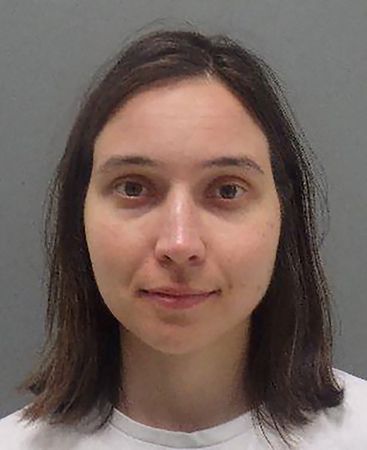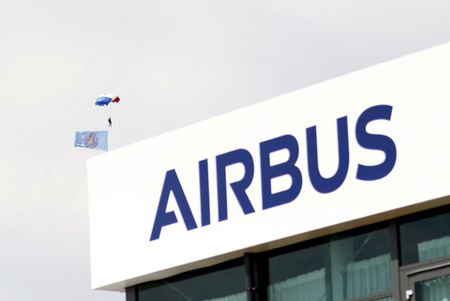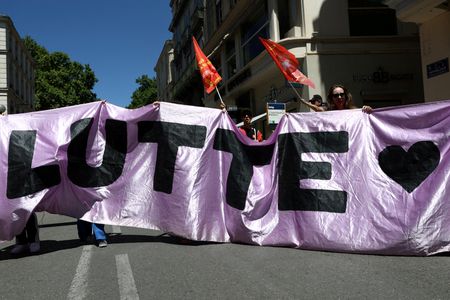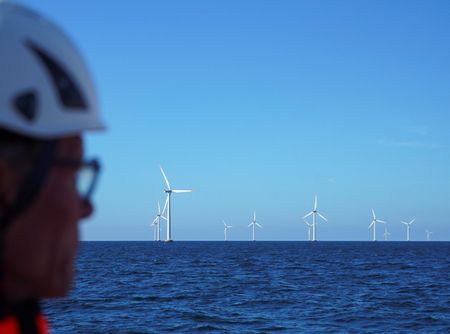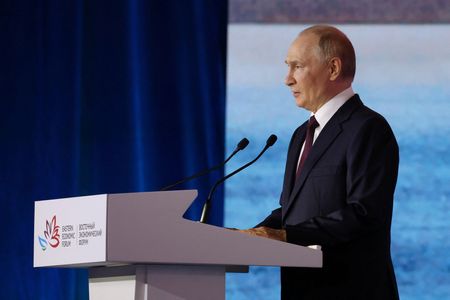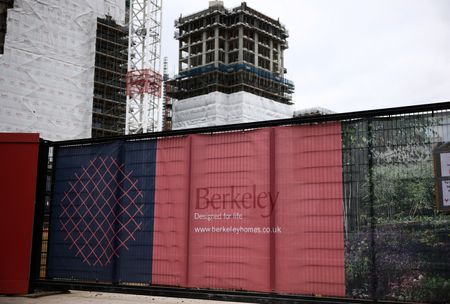By Nate Raymond
(Reuters) -A federal judge in Vermont on Wednesday ruled that the continued detention by immigration authorities of a Russian-born scientist at Harvard University was unjustified, removing a key hurdle to the researcher being released from U.S. custody more than three months after she was detained at an airport in Boston.
U.S. District Judge Christina Reiss said during a hearing in Burlington, Vermont that it appeared immigration authorities had detained Kseniia Petrova in February and canceled her visa without any factual or legal basis for doing so after discovering frog embryo samples in her luggage.
“What happened in this case was extraordinary and novel,” Reiss said.
Reiss was not able to order Petrova’s full release from government custody, as federal prosecutors in Boston earlier this month criminally charged her with illegally attempting to smuggle the frog embryo samples into the country.
She is now being held by the U.S. Marshals Service, and a judge in her criminal case would need to decide whether to grant her bail as well when she goes before the court as soon as next week.
But Reiss said bail in her related immigration case was appropriate as U.S. Immigration and Customs Enforcement has indicated that it intends to re-detain Petrova if a judge in her criminal case grants her bail.
“At today’s hearing, we demonstrated that Kseniia is neither a danger to the community nor a flight risk, and does not belong in immigration detention,” her lawyer, Gregory Romanovsky, said in a statement.
The Justice Department declined to comment.
Petrova, 31, was detained at Logan International Airport in Boston on February 16 on her return from a trip to France. Petrova, who works at Harvard Medical School, has said her boss asked her to bring back frog embryo samples for ongoing experiments.
Petrova’s detention comes amid efforts by Republican President Donald Trump’s administration to ramp up deportations and revoke student visas as part of its wide-ranging efforts to fulfill his hardline immigration agenda.
Federal judges in Vermont have similarly ordered immigration authorities to release from custody students at Tufts University and Columbia University who were arrested after engaging in pro-Palestinian advocacy on campus.
Reiss, who is presiding over a lawsuit Petrova filed challenging her immigration detention, said Petrova raised a substantial claim that “her current detention is the product of a process that has nothing to do with the merits of this case.”
Reiss said the embryos were “non-hazardous, non-toxic, non-living, and posed a threat to no one,” and that Petrova had established a likelihood of proving they did not qualify as the type of biological material she needed to declare to customs.
Reiss said that while Petrova asked at the airport to be allowed to return to France, the government instead detained her with the intent to deport her to Russia, a prospect Petrova has said she fears after protesting Russia’s war in Ukraine.
(Reporting by Nate Raymond in Boston, Editing by Alexia Garamfalvi and Lisa Shumaker)

